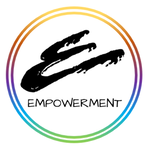VALUES:
Anti-Oppression
- Dismantle systems of oppression to create a more equitable society
- Create inclusive, anti-oppressive and participant centered policy and practices
- Intentionally build an organization that reflects diverse identities and lived experiences within board, staff, participants, and partners
- Amplify the voices of individuals who have deep, profound knowledge and insight that come from experiencing severe racial and social injustice
- Fight poverty; not the poor
- Be accountable to yourselves, participants, and the community by being ethical, competent, dependable, transparent, and acting with integrity
- Invest in and prioritize self-care to support a trauma responsive culture and retention of staff and participants
- Take responsibility for our impact on members of marginalized groups regardless of our intent because good intent does not negate the negative impact micro aggressions have
- Work collaboratively as partners with participants, co-workers and the community to empower vulnerable and oppressed individuals
- Support peer learning and collaboration inside and outside the organization
- Recognize that human relationships and connections are critically important vehicles for healing and change
- Empower those who have been directly impacted by injustice to emerge as partners and leaders of the movements for justice we are building
- Strengthen relationships among people in a purposeful effort to promote, restore, maintain and enhance the well-being of participants, families, social groups, organizations and communities
- Cultivate a safe, welcoming, and genuine organizational culture that values each individual’s contributions
- Treat everyone with respect, consideration, sensitivity and dignity by honoring all identities and lived experiences
- Foster the ability to recognize and address personal biases proactively
- Promote open and honest communication
- Challenge opposing views respectfully – call others in rather than calling them out
Empowerment’s values were adopted in part from the National Association of Social Workers’ Code of Ethics

